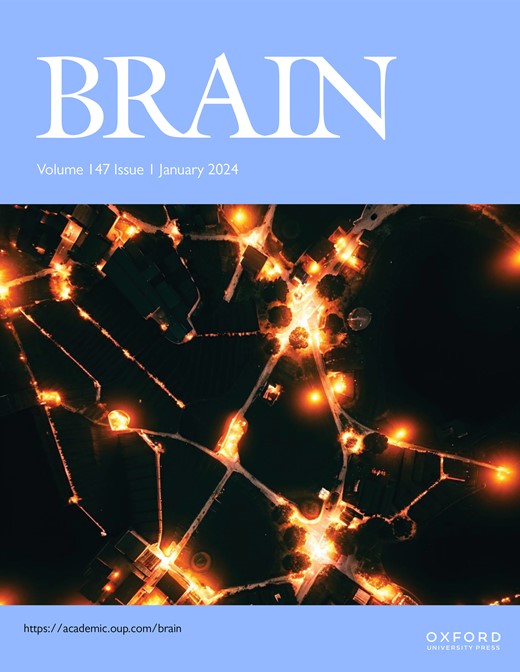Ageing and remyelination failure in people with multiple sclerosis
IF 11.7
1区 医学
Q1 CLINICAL NEUROLOGY
引用次数: 0
Abstract
One of the most promising strategies to delay, prevent, or reverse disability progression in multiple sclerosis (MS) is enhancing endogenous remyelination. While preclinical research has established a strong connection between ageing and remyelination failure, evidence for this same link in people with MS remains less secure. As clinical trials for remyelinating therapies progress, clarifying this relationship is essential. A deeper understanding could guide the selection of therapeutic candidates, refine patient selection, and optimise the timing of treatment delivery. In this review, we describe the available evidence that has investigated the impact of age on remyelination in people with MS. We categorise these into pathological, imaging and clinical studies. We explore the challenges in measuring remyelination in humans and determine the implications for the connection between remyelination and age. Current evidence suggests that there is reduced capacity for remyelination with advancing age in people with MS. However, these findings are at times inconsistent and the precise contribution of ageing to remyelination failure is unclear. There does not appear to be an age cut-off beyond which remyelination is not possible, as there are pathological data supporting remyelination occurring, to some extent, across all ages. Interestingly, the impact of age may vary by lesion location. Further targeted research, specifically exploring the relationship between ageing and remyelination, is needed. With emerging evidence that ageing processes might be malleable, we conclude that targeting the biology of ageing might also be an important strategy to therapeutically enhance remyelination.多发性硬化症患者的衰老和髓鞘再生失败
延迟、预防或逆转多发性硬化症(MS)残疾进展的最有希望的策略之一是增强内源性髓鞘再生。虽然临床前研究已经建立了衰老和髓鞘再生失败之间的紧密联系,但在多发性硬化症患者中,这种联系的证据仍然不太可靠。随着髓鞘再生治疗的临床试验的进展,澄清这种关系是至关重要的。更深入的了解可以指导治疗候选人的选择,改进患者的选择,并优化治疗交付的时间。在这篇综述中,我们描述了研究年龄对ms患者髓鞘再生影响的现有证据。我们将这些研究分为病理、影像学和临床研究。我们探索在人类测量髓鞘再生的挑战,并确定髓鞘再生和年龄之间的联系的含义。目前的证据表明,随着ms患者年龄的增长,骨髓鞘再生能力降低。然而,这些发现有时不一致,衰老对骨髓鞘再生失败的确切贡献尚不清楚。似乎没有一个年龄限制,超过这个年龄就不可能发生髓鞘再生,因为有病理数据支持髓鞘再生的发生,在某种程度上,在所有年龄段。有趣的是,年龄的影响可能因病变部位而异。需要进一步的针对性研究,特别是探索衰老和髓鞘再生之间的关系。随着越来越多的证据表明衰老过程可能是可塑的,我们得出结论,针对衰老的生物学也可能是治疗上增强髓鞘再生的重要策略。
本文章由计算机程序翻译,如有差异,请以英文原文为准。
求助全文
约1分钟内获得全文
求助全文
来源期刊

Brain
医学-临床神经学
CiteScore
20.30
自引率
4.10%
发文量
458
审稿时长
3-6 weeks
期刊介绍:
Brain, a journal focused on clinical neurology and translational neuroscience, has been publishing landmark papers since 1878. The journal aims to expand its scope by including studies that shed light on disease mechanisms and conducting innovative clinical trials for brain disorders. With a wide range of topics covered, the Editorial Board represents the international readership and diverse coverage of the journal. Accepted articles are promptly posted online, typically within a few weeks of acceptance. As of 2022, Brain holds an impressive impact factor of 14.5, according to the Journal Citation Reports.
 求助内容:
求助内容: 应助结果提醒方式:
应助结果提醒方式:


